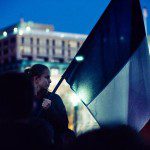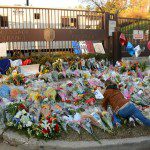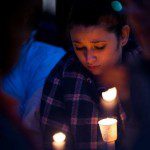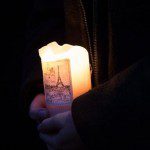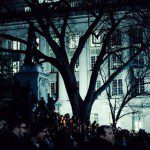Paris and Us: Tossed But Not Sunk
By • November 20, 2015 0 1082
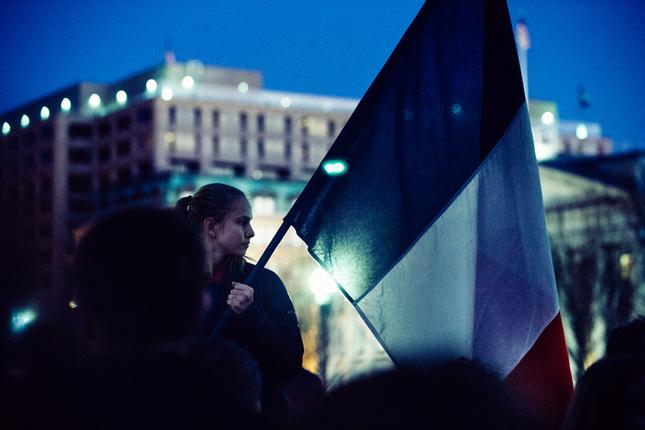
Each day it seems we wake up in a brand new, sometimes fearful world. It comes at us in headlines: in our emails, in our post-trauma morning newspapers.
The world changed on Friday with the first halting words in the New York Times at 4:33 p.m. EST: “Police Say There Has Been an Explosion at a bar near a Paris Stadium and a shootout at a Paris Restaurant.”
That was the beginning of a time-and-world-altering series of events. Seven terrorists managed to accomplish a day of horrifying bloodshed in a city that had already suffered such an attack in January, but not on this scale.
Eight attackers apparently took part. Three suicide bombs were set off at the Stade de France, a large stadium where the French and German soccer teams were engaged in a friendly game attended by the French President François Holland, who was whisked away. At about the same time, two gunmen marched through three different restaurants and randomly killed 26, 5 and 19 people. In the night’s biggest atrocity, at the venerable and packed Bataclan concert hall, three gunmen proceeded to shoot for about 15 minutes, killing 89 people and holding the rest hostage until police managed to storm the hall just after midnight. The terrorists blew themselves up.
All of this was known here by Friday night, sending twinges of horror, shock, fear, worry and sympathy through everyone who watched the events unfold on television. By Saturday, familiar sights were seen: expressions of grief and respect at Lafayette Square, attended by the French ambassador; candlight vigils and visitations at the Embassy of France on Saturday.
This was not like the January attack, which was plainly political. This attack struck at safe places: restaurants, a soccer stadium, a concert hall on a Friday night when people took what pleasure they could in the company of others, friends, family, fellow citizens. This is where you took your leisure, enjoyed the fruits of your labor, a place where you enjoyed the popular culture in safety.
The attacks seemed to hit at the heart of Western popular culture, which ISIS and its followers despise. It sent a message of more to come, not just in Paris — a place many of us remember, with now a fondness tinged with sadness — but here in America and elsewhere. Politicians running for office here set about finding blame, a fruitless folly of bombast. Meanwhile, the French, with their American allies, struck back at ISIS.
The people — both European and American — wept and worried, and felt the ground shifting once again under their feet.
The cliché remains. As we consider how to live in a changed world, one of the fundamental goals of terrorism is not just to make you afraid, but to make you give in to your fear and radically and fundamentally change the way you live. Stay away from crowds, keep your distance from the White House, don’t go to a large concert hall, speak softly and don’t carry a stick. Now, people will say, is not the time to travel overseas because — well, you know.
Now, maybe, is exactly the time to do what you always do, to travel because you made plans to travel, even go to Paris, because you never have. Doing the things you always do — and traveling is one of those things — can be one of those small or large acts of defiance in the face of terror and terrorists, who want you to be afraid, be very afraid. Within practical limits, you can defy fear. The motto of Paris is “Fluctuat nec mergitur”—meaning “Tossed but not sunk”—and tells us so.
Indeed, we are all French.
- Vigil for Paris at Lafayette Park in front of the White House Nov. 15. | Erin Schaff
- Nora Birch
- Nora Birch

